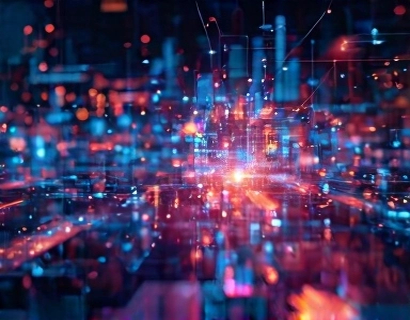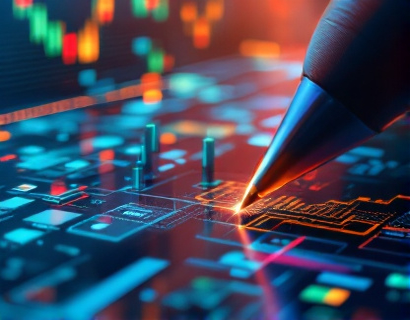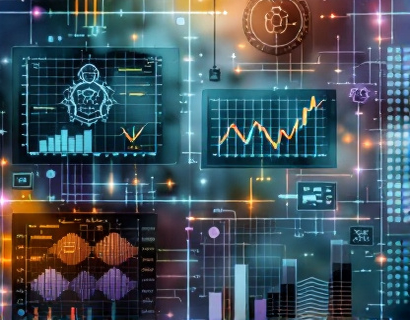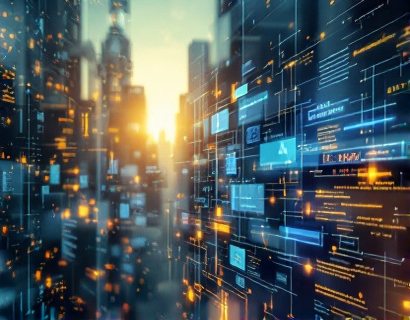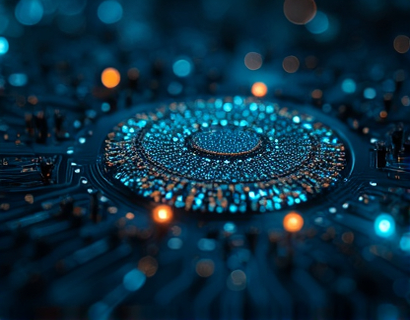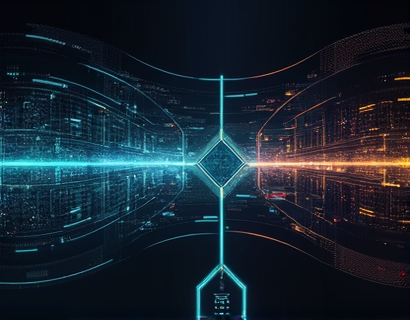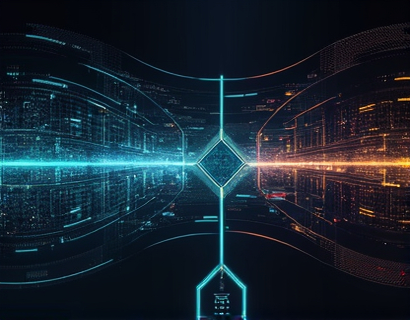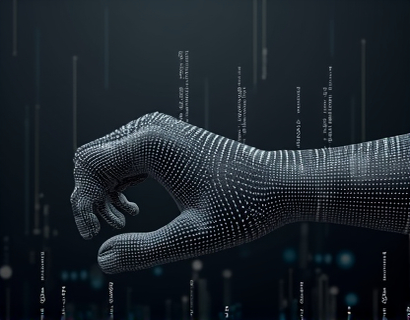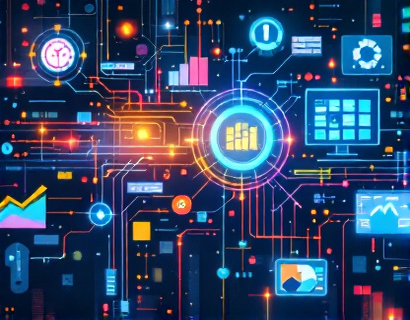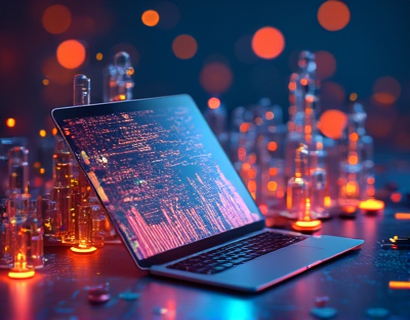The Synergy of AI and Crypto: Pioneering the Next-Gen Decentralized Digital Transformation
The intersection of artificial intelligence (AI) and cryptocurrency is giving birth to a new era of digital transformation, one that promises to redefine how we interact with technology and conduct business in the decentralized economy. This fusion is not merely an evolution but a revolution, offering unprecedented opportunities for growth, efficiency, and innovation. As tech professionals and enthusiasts, understanding this synergy is crucial for navigating and thriving in the future landscape of technology.
Foundations of AI and Crypto
To appreciate the transformative power of AI and crypto, it's essential to first understand their individual foundations. Artificial intelligence, a subset of computer science, focuses on creating systems capable of performing tasks that traditionally required human intelligence. These tasks include learning from experience, understanding natural language, recognizing patterns, and making decisions. AI's advancements have been driven by machine learning, deep learning, and natural language processing, enabling machines to improve their performance over time without explicit programming.
Cryptocurrency, on the other hand, is a digital or virtual currency that uses cryptography for security and operates on a decentralized network, typically a blockchain. The most well-known cryptocurrency is Bitcoin, but there are thousands of others, each with unique features and purposes. Blockchain technology, the backbone of cryptocurrencies, is a distributed ledger that records transactions across multiple computers in such a way that the registered transactions cannot be altered retroactively. This technology ensures transparency, security, and decentralization, eliminating the need for intermediaries.
AI in Cryptocurrency: Enhancing Security and Efficiency
The integration of AI into cryptocurrency systems is revolutionizing how these digital assets are secured, traded, and managed. One of the most significant applications of AI in crypto is in enhancing security. Traditional security measures are often static and can be bypassed by sophisticated cyber attacks. AI, with its ability to learn and adapt, can detect and respond to threats in real-time. Machine learning algorithms analyze patterns and anomalies in transaction data, identifying potential fraud or malicious activities before they cause damage. This proactive approach to security is crucial in a space where the stakes are high and the risks are significant.
AI also improves the efficiency of cryptocurrency markets. Trading algorithms powered by AI can analyze vast amounts of data, including market trends, news, and social media sentiment, to make informed trading decisions. These algorithms can execute trades at optimal times, maximizing profits and minimizing losses. Additionally, AI can optimize mining operations for cryptocurrencies that rely on proof-of-work, such as Bitcoin, by predicting energy prices and adjusting mining power accordingly, thus reducing costs and increasing profitability.
Crypto as a Catalyst for AI Development
Conversely, the cryptocurrency space is a fertile ground for AI development. The decentralized and transparent nature of blockchain provides an ideal environment for AI models to be trained and validated. The vast amount of data available on the blockchain, from transaction records to smart contract executions, offers a rich source of information for training machine learning algorithms. This data is not only abundant but also tamper-proof, ensuring the integrity and reliability of the AI models.
Moreover, the incentive structures inherent in blockchain, such as token rewards, can drive the development and deployment of AI solutions. Developers can create AI-driven applications and tools that solve real-world problems within the crypto ecosystem, from improving scalability and interoperability to enhancing user experience. The community-driven nature of crypto projects encourages collaboration and innovation, fostering a dynamic environment where AI and crypto technologies can mutually benefit.
Decentralized Applications (DApps) and AI
Decentralized applications, or DApps, are a prime example of how AI and crypto are converging to create new digital experiences. DApps operate on blockchain networks and offer functionalities similar to traditional applications but with enhanced features like transparency, security, and user control. AI can significantly enhance DApps by providing intelligent services and personalized experiences.
For instance, AI-powered chatbots can be integrated into DApps to offer 24/7 customer support, answering queries and guiding users through complex processes. These chatbots can understand natural language, learn from user interactions, and improve over time, providing a seamless and intuitive user experience. Additionally, AI can be used to optimize the performance of DApps by predicting user behavior, managing resources efficiently, and automating routine tasks.
Smart contracts, the backbone of DApps, can also benefit from AI. AI can analyze the conditions and outcomes of smart contracts, ensuring they function as intended and identifying potential vulnerabilities. This can enhance the reliability and trustworthiness of smart contracts, making them more appealing for a wide range of applications, from finance and supply chain management to healthcare and voting systems.
Enhancing User Experience through AI and Crypto
The combination of AI and crypto is not only about backend efficiency and security but also about enhancing the user experience. User-friendly interfaces and seamless integration are key to adopting new technologies, and this is where AI plays a pivotal role. AI-driven interfaces can adapt to user preferences and behaviors, providing a personalized and intuitive experience. For example, AI can recommend relevant DApps, services, and content based on a user's past interactions and interests, much like how streaming services suggest movies and shows.
Furthermore, AI can improve the accessibility of crypto technologies. For users who are not tech-savvy, AI-powered assistants can guide them through the process of using DApps, managing their digital assets, and understanding complex concepts. This democratization of technology ensures that the benefits of the decentralized economy are accessible to a broader audience.
Challenges and Considerations
While the potential of AI and crypto is immense, there are challenges and considerations that must be addressed. One of the primary concerns is regulatory compliance. The crypto space is still navigating a complex web of regulations, and the integration of AI adds another layer of complexity. Ensuring that AI-driven crypto solutions comply with local and international laws is crucial to avoid legal issues and maintain user trust.
Another challenge is the technical integration of AI and blockchain. Both technologies are rapidly evolving, and ensuring compatibility and interoperability can be challenging. Developers must stay updated with the latest advancements and best practices to create robust and scalable solutions. Additionally, the energy consumption of AI and blockchain, particularly proof-of-work systems, raises environmental concerns that need to be addressed through sustainable practices and innovations.
Future Prospects
The future of AI and crypto is bright, with numerous opportunities for growth and innovation. As AI continues to advance, we can expect more sophisticated and efficient solutions in the crypto space. For instance, the development of AI-driven decentralized finance (DeFi) platforms can revolutionize traditional financial systems by offering more transparent, accessible, and secure financial services. AI can optimize lending, borrowing, and trading processes, reduce fraud, and enhance risk management.
Moreover, the integration of AI with other emerging technologies, such as the Internet of Things (IoT) and 5G, can create a more interconnected and intelligent world. IoT devices can generate vast amounts of data that AI can analyze to provide insights and automate processes, while 5G can enable faster and more reliable communication between these devices and blockchain networks.
In conclusion, the fusion of AI and crypto is a powerful force driving the next generation of digital transformation. By leveraging the strengths of both technologies, we can create more secure, efficient, and user-friendly decentralized applications and services. As tech professionals and enthusiasts, embracing this synergy is essential for staying ahead in the rapidly evolving tech landscape.





